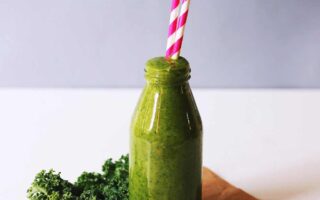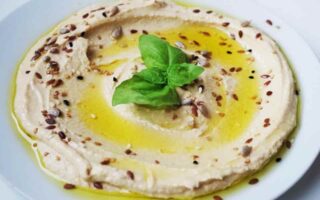Unless you’re eloping to Gretna Green, or secretly jetting off to Las Vegas by yourselves to get married by Elvis Presley, planning a wedding leaves you knee-deep or even neck-deep in to-do lists.
You spend hours drawing up the guest list, asking around for recommendations for wedding photographers, looking at flowers and auditioning caterers.
Ah, the caterers.
You’ve just remembered that first cousin twice removed on your mum’s side with a peanut allergy who will be hospitalised or worse if they eat the peanut sauce being served with one of the courses.
Oops.
Now you have two options. Remove the cousin from the guest list or let the caterers know you have a guest with a peanut allergy. Your mum will never forgive you if your cousin gets left out of the proceedings, so talking to the caterers it is.
That’s fine.
Caterers will be used to catering for dietary requirements – catering is literally their job, after all. But now you’re wondering if there are any other guests on your list you’re in danger of killing or leaving hungry because of their dietary requirements.
So, how do you find out if you need to cater for any dietary requirements at your wedding?

Ask your guests to state any dietary requirements when they RSVP
Ask your guests when they RSVP to state whether they have any dietary requirements. This will ensure that whether you’re getting married at a wedding venue in Essex or on a beach in the Bahamas, everyone gets to enjoy the food.
There are a number of reasons why your guests might not be able to enjoy the menu you originally planned – those reasons may be medical, ethical or religious. Once you know who you need to cater for you, you’ll be able to let your caterers know.
This list isn’t a complete list of every consideration you might need to make, but here are some dietary requirements your wedding guests might have.
Food allergy v food intolerance
Food allergies and intolerances are different things although sufferers can display some of the same signs and symptoms.
A food allergy causes a reaction in the immune system that can affect numerous organs in the body. A true food allergy can be severe and even life-threatening, as opposed to an intolerance, which usually causes less serious symptoms that are often limited to digestion problems.
This isn’t meant to downplay the unpleasant effects of a food intolerance, but to highlight the difference between an allergy and an intolerance.
Simply put: if you feed someone something they’re allergic to, they might die – if they’re intolerant to it, they probably won’t die but they won’t feel well and will suffer some unpleasant side-effects.
Peanut allergy
Let’s start with that first cousin twice removed on your mum’s side with their peanut allergy. First of all, don’t think that you can just have a nut-free menu and that’s their allergy sorted.
As strange as it may seem, peanuts aren’t actually nuts. Yes, we know ‘peanut’ has the word ‘nut’ in its name but a peanut is a legume (the fruit of a plant in the pea family), not a nut.
A peanut allergy is potentially life-threatening and needs to be taken seriously when considering your wedding menu.
Other allergies
You know all those ingredients on a label that are in bold type? They’re in bold because of potential allergies. Manufacturers have to state these by law so unsuspecting customers don’t accidentally poison themselves because they couldn’t clearly see what they’re buying.
Ingredients such as celery, mustard, egg, milk, fish, soya, wheat are all commonly-used foods that can cause an allergic reaction.
Vegetarian
We’re sure you know what a vegetarian is. You probably have lots of friends who are vegetarian and a number of your wedding guests are sure to specify they’re vegetarian.
Vegetarians don’t eat meat, poultry or fish or anything that includes anything made from meat, poultry or fish ingredients.
Although being vegetarian isn’t an allergy or intolerance, vegetarians won’t be pleased if they’re offered something that’s not strictly vegetarian.
For example, Parmesan is never vegetarian as it’s made from rennet, which is made from a calf’s or goat’s stomach lining.
Similarly, desserts containing gelatine are also a no-no, as gelatine is made from skin, tendons and bones.
Just to confuse things even further, not all drinks are vegetarian. For example, some beers and wines use fining agents containing fish. Even some soft drinks such as Lilt aren’t suitable for vegetarians as they contain animal derivatives.
In general, many vegetarians do eat eggs and (vegetarian) cheese but there are sub-sections in vegetarianism as follows:
- Lacto-ovo vegetarians eat eggs and dairy products
- Lacto vegetarians eat dairy products but no eggs
- Ovo vegetarians eat eggs but no dairy products
With regard to your menu planning, you probably don’t need to get too worried about which type of vegetarian your guests are if they put ‘vegetarian’ on their RSVP. If one of your vegetarian guests don’t eat eggs or dairy, they’ll either tell you or request a vegan menu.
Vegan
Vegans don’t eat or wear any animal products at all. That means no meat, poultry, dairy, eggs, honey, wool or leather.
Vegans are probably easier to cater for than vegetarians as there’s no grey area. If it’s connected to an animal in some way, don’t serve it to a vegan.
That includes the drinks such as wine that may use fining agents containing fish, egg or milk.
If your caterer doesn’t know if the drinks are vegetarian or vegan and the manufacturer’s website doesn’t say, you can try checking on Barnivore.
Gluten-free/coeliac
While being vegetarian or vegan may be a lifestyle choice, being gluten-free is most definitely not a choice for coeliacs.
Coeliac disease is a condition where someone’s immune system attacks their tissues when they eat gluten, damaging their gut and leaving them unable to take in any nutrients.
If you have coeliacs on your guest list who need to avoid gluten, this must be taken seriously (although it goes without saying that all your guests’ requirements must be taken seriously).
Foods containing gluten include:
- Bread
- Pasta
- Cereals
- Biscuits or crackers
- Cakes and pastries
- Pies
- Gravies and sauces
In other words, probably everything on your menu.
Alcohol-free
Considering how many reasons there are for people not drinking alcohol:
- religious reasons;
- lifestyle choices;
- health reasons;
- pregnancy;
- driving;
- or they just don’t fancy drinking alcohol that day,
non-drinkers can often get forgotten about while other guests are constantly getting their glasses topped up with wine and champagne.
Non-drinkers often get offered water or orange juice, neither of which are particularly exciting, even if they do get offered a choice of still or sparkling water.
Include your non-drinking guests at your wedding by offering them non-alcoholic beer, wine and sparkling wine and a selection of interesting soft drinks such as kombucha and a range of mocktails.
Let your guests raise a toast with a glass of non-alcoholic sparkling wine, not water.
Keeping everyone happy on your big day
After reading the above, you may feel inclined to call the wedding off or just tell your guests to bring their own food. Don’t let the myriad of allergies, intolerances and lifestyle choices overwhelm you though – wait until you have all your RSVPs in and then let your caterers know what dietary restrictions they have to cater for.
Your caterers will be able to either adapt the menu to suit everyone or create a separate menu with free-from options for people to choose from according to their requirements.
With a little forward-thinking and planning, you’ll have a day that everyone remembers. As being one where they were beautifully catered for instead of being an afterthought or forgotten about completely.




